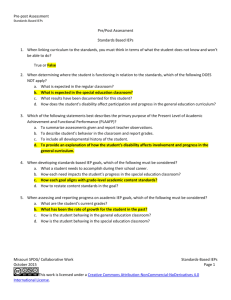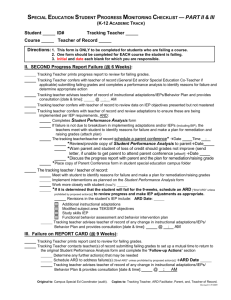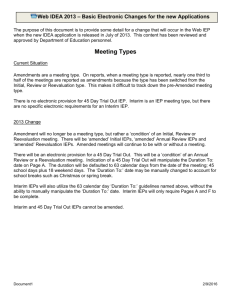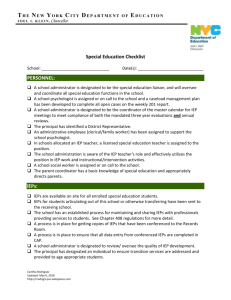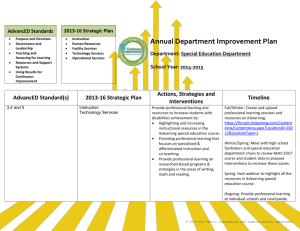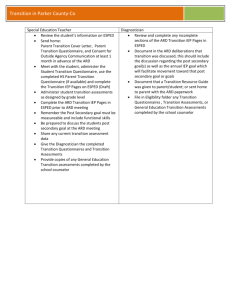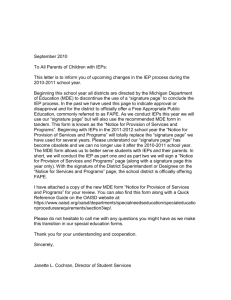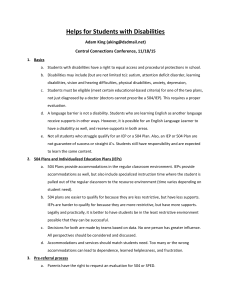2010 Statewide Systemic Issues of Noncompliance The seven items
advertisement
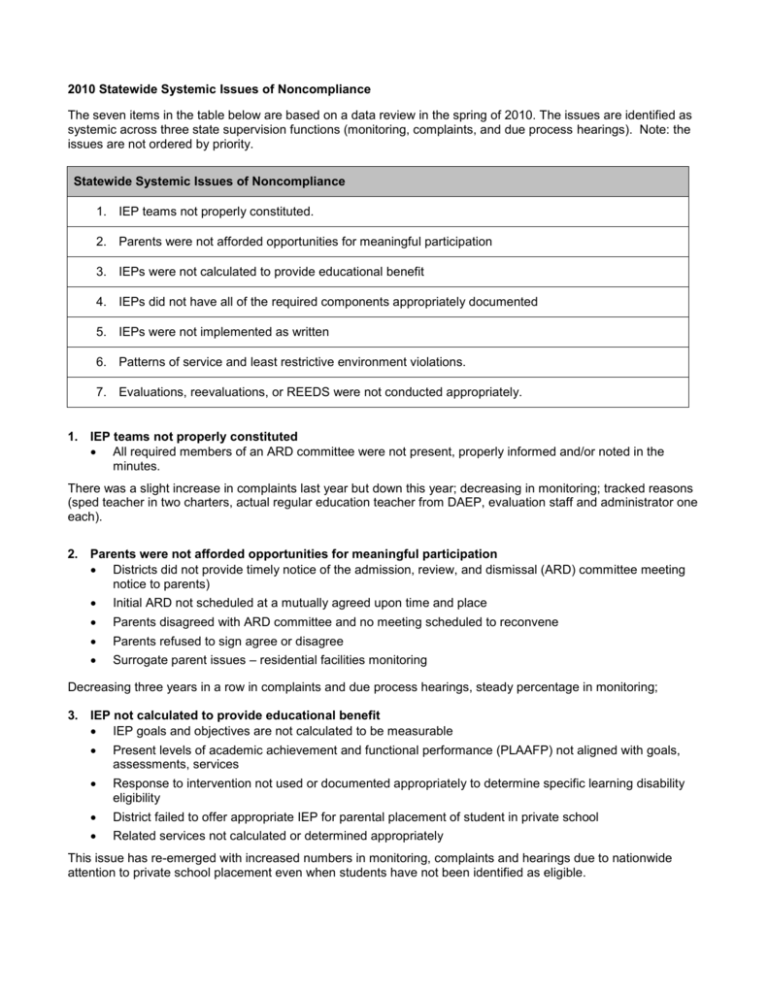
2010 Statewide Systemic Issues of Noncompliance The seven items in the table below are based on a data review in the spring of 2010. The issues are identified as systemic across three state supervision functions (monitoring, complaints, and due process hearings). Note: the issues are not ordered by priority. Statewide Systemic Issues of Noncompliance 1. IEP teams not properly constituted. 2. Parents were not afforded opportunities for meaningful participation 3. IEPs were not calculated to provide educational benefit 4. IEPs did not have all of the required components appropriately documented 5. IEPs were not implemented as written 6. Patterns of service and least restrictive environment violations. 7. Evaluations, reevaluations, or REEDS were not conducted appropriately. 1. IEP teams not properly constituted All required members of an ARD committee were not present, properly informed and/or noted in the minutes. There was a slight increase in complaints last year but down this year; decreasing in monitoring; tracked reasons (sped teacher in two charters, actual regular education teacher from DAEP, evaluation staff and administrator one each). 2. Parents were not afforded opportunities for meaningful participation Districts did not provide timely notice of the admission, review, and dismissal (ARD) committee meeting notice to parents) Initial ARD not scheduled at a mutually agreed upon time and place Parents disagreed with ARD committee and no meeting scheduled to reconvene Parents refused to sign agree or disagree Surrogate parent issues – residential facilities monitoring Decreasing three years in a row in complaints and due process hearings, steady percentage in monitoring; 3. IEP not calculated to provide educational benefit IEP goals and objectives are not calculated to be measurable Present levels of academic achievement and functional performance (PLAAFP) not aligned with goals, assessments, services Response to intervention not used or documented appropriately to determine specific learning disability eligibility District failed to offer appropriate IEP for parental placement of student in private school Related services not calculated or determined appropriately This issue has re-emerged with increased numbers in monitoring, complaints and hearings due to nationwide attention to private school placement even when students have not been identified as eligible. 4. IEPs did not have all required components appropriately documented. IEPs did not address the following: Present levels of performance Goals and objectives or benchmarks Assessments Frequency, location, duration for related services Progress reports not aligned with goals State assessment (TAKS) Strengths of the student Concerns of the parent This issue has been addressed two years in a row. The numbers for complaints have stayed steady, but monitoring has increased numbers of violations based on the RF Monitoring process. 5. IEP is not implemented as written Districts did not implement IEPs with regard to: Modifications Schedule of Services Behavior Intervention Plan (BIP) Content mastery Related services Speech therapy Extended School Year (ESY) Services Instructional setting Numbers in complaints remain steady but monitoring findings are increasing. 6. Pattern of service and LRE violations Districts did not properly provide related services to students in the following areas: Uniformity of services for administrative convenience Generalization of service delivery models Scheduling issues between parents and the school Failure to implement established district procedures ARD Committees did not reference frequency/duration of services in IEPs. Districts did not provide special education services on an individualized, student-specific basis, and instead separated students with disabilities from other students and/or provided special education services by group or disability. Decreasing numbers in complaints but increasing numbers in hearings and monitoring. 7. Evaluations, reevaluations, or REEDS were not conducted appropriately. District using RtI after parent requests evaluation without notice of refusal District using RtI without adequate documentation of progress data Eligibility ARDC meeting not held within 30 days of date of report Review of Existing Educational Data (REED) not addressed REED addressed but formal evaluation not performed when requested or needed Evaluation not completed with required components
